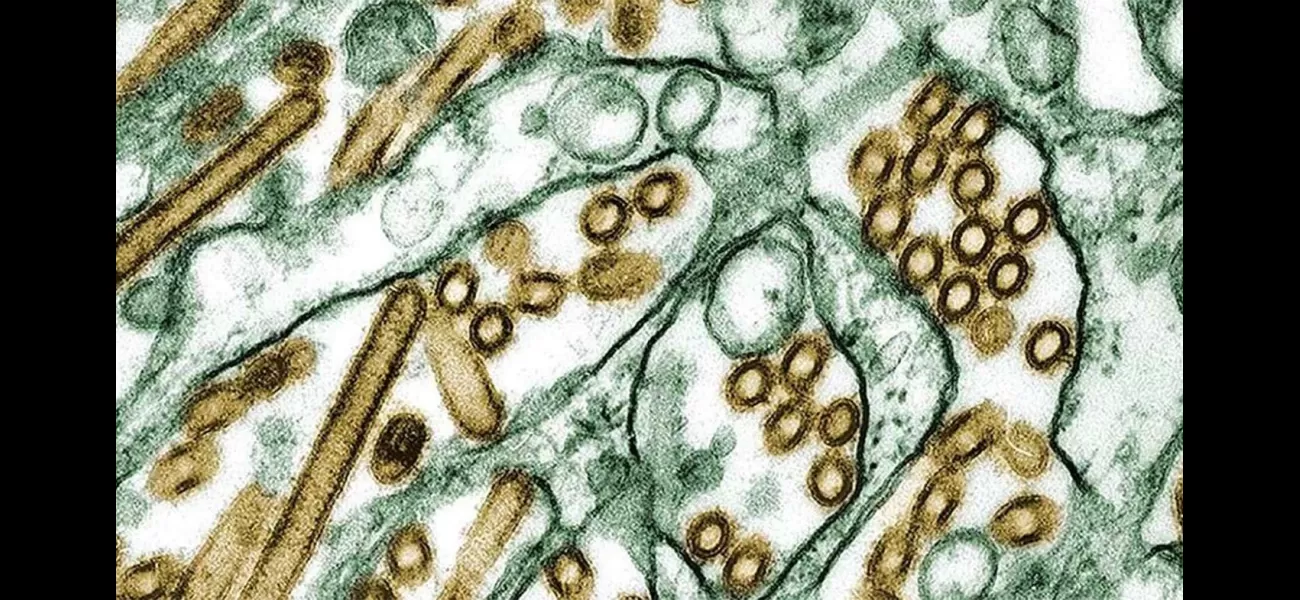Risk of new bird flu case is low, but it is spreading to other countries.
Experts confirm that the bird flu found at a Victorian egg farm is not the same strain causing global issues.
May 23rd 2024.

The recent detection of bird flu at a Victorian egg farm has sparked concerns, but experts want to assure the public that it is not the strain currently causing chaos around the world. However, they also warn that this does not mean Australia can let its guard down.
The virus responsible for the death of poultry at the Meredith farm has been identified as the H7N3 high pathogenic strain, which has been previously detected in Australia. This is different from the H5N1 strain, which has caused recent outbreaks in the US and other parts of the world, but has not been found in Australian birds yet.
To prevent further spread of the virus, movement controls have been put in place around the affected farm and contact tracing is underway to determine the source of the infection. While the risk to the public is currently low, experts acknowledge that there is potential for humans to become infected if they come into direct contact with the virus.
However, they want to reassure consumers that there is no need to worry about eggs and poultry products from supermarkets, as they are safe to consume. In fact, the risk of contracting the virus through these products is very low.
While H5N1 has not been detected in Australian birds, a returned overseas traveler in Victoria was found to be carrying the virus. Fortunately, the child has since recovered and there is no evidence of person-to-person transmission from this case.
Professor Adrian Estermann, Chair of Biostatistics at the University of South Australia, believes that it is highly likely that H5N1 will eventually be detected in Australian animals. This is concerning because the virus is highly pathogenic for birds and has a high fatality rate for humans. However, there is currently no evidence of person-to-person transmission.
Associate Professor Sanjaya Senanayake, an infectious disease specialist at the Australian National University, stresses the importance of containing the current outbreak at the farm. He explains that if the virus continues to spread, it could mutate and potentially become a pandemic threat.
He also highlights the risk of infection from poultry to farmed pigs, as pigs can act as a mixing pot for different flu viruses, making it easier for them to spread to humans. However, unlike with COVID, there are already vaccines and antivirals available for H5N1.
Professor Bob Doneley, a bird medicine specialist at the University of Queensland, believes that Australia's experience in managing H7N3 will be beneficial if a new strain of the bird flu virus emerges in the future. He reassures that the necessary skills and measures are in place to contain and manage such outbreaks.
In these uncertain times, it's important to stay informed. To stay updated on all the latest breaking news, celebrity gossip, and sports updates, join our WhatsApp channel. No comments, no algorithm, and your private information will remain safe.
The virus responsible for the death of poultry at the Meredith farm has been identified as the H7N3 high pathogenic strain, which has been previously detected in Australia. This is different from the H5N1 strain, which has caused recent outbreaks in the US and other parts of the world, but has not been found in Australian birds yet.
To prevent further spread of the virus, movement controls have been put in place around the affected farm and contact tracing is underway to determine the source of the infection. While the risk to the public is currently low, experts acknowledge that there is potential for humans to become infected if they come into direct contact with the virus.
However, they want to reassure consumers that there is no need to worry about eggs and poultry products from supermarkets, as they are safe to consume. In fact, the risk of contracting the virus through these products is very low.
While H5N1 has not been detected in Australian birds, a returned overseas traveler in Victoria was found to be carrying the virus. Fortunately, the child has since recovered and there is no evidence of person-to-person transmission from this case.
Professor Adrian Estermann, Chair of Biostatistics at the University of South Australia, believes that it is highly likely that H5N1 will eventually be detected in Australian animals. This is concerning because the virus is highly pathogenic for birds and has a high fatality rate for humans. However, there is currently no evidence of person-to-person transmission.
Associate Professor Sanjaya Senanayake, an infectious disease specialist at the Australian National University, stresses the importance of containing the current outbreak at the farm. He explains that if the virus continues to spread, it could mutate and potentially become a pandemic threat.
He also highlights the risk of infection from poultry to farmed pigs, as pigs can act as a mixing pot for different flu viruses, making it easier for them to spread to humans. However, unlike with COVID, there are already vaccines and antivirals available for H5N1.
Professor Bob Doneley, a bird medicine specialist at the University of Queensland, believes that Australia's experience in managing H7N3 will be beneficial if a new strain of the bird flu virus emerges in the future. He reassures that the necessary skills and measures are in place to contain and manage such outbreaks.
In these uncertain times, it's important to stay informed. To stay updated on all the latest breaking news, celebrity gossip, and sports updates, join our WhatsApp channel. No comments, no algorithm, and your private information will remain safe.
[This article has been trending online recently and has been generated with AI. Your feed is customized.]
[Generative AI is experimental.]
0
0
Submit Comment





